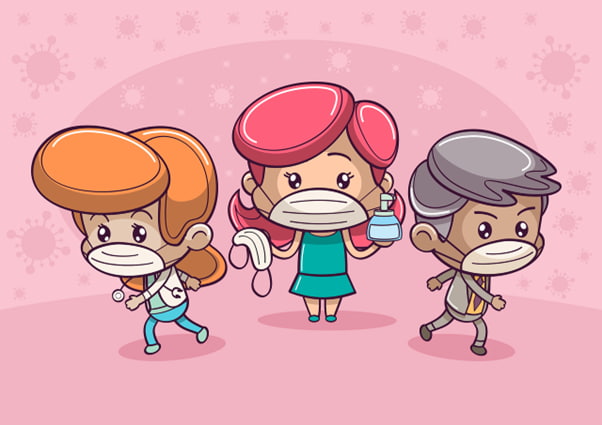In today’s fast-paced, high-stress world, healthcare has become more critical than ever. But when we talk about healthcare, the spotlight often shines on doctors and medical specialists, leaving other healthcare professionals like nurses in the shadows. This oversight does a great disservice to the men and women who are, quite literally, on the front lines of patient care every single day. Nurses are the healthcare sector’s backbone, the unsung heroes who play a pivotal role in our well-being and recovery journey.
It’s nurses who greet us at the doors of healthcare facilities, assess our condition, administer treatments, and continuously monitor our progress. They are the go-to people for explaining complex medical jargon in a way we can understand, easing our worries and fears, and even offering a smile or a word of encouragement when we need it the most. Yet, despite their essential roles, the breadth of their responsibilities and the depth of their impact are often underappreciated. This article aims to correct that oversight by taking a closer look at the indispensable role and impact of nurses in the healthcare sector. From clinical care and patient education to emotional support and specialized roles, nurses are multifaceted professionals whose influence goes far beyond what’s often acknowledged.
With this extended introduction, we set the stage for an in-depth exploration of the vital role that nurses play in healthcare, a role that is both complex and impactful. Whether you’re a healthcare professional, a patient, or someone interested in entering the nursing profession, this article offers valuable insights into the world of nursing. Let’s start:
Keeping Up with Medical Advancements
The medical field is in a constant state of evolution. New treatment methods, innovative technologies, and updated guidelines are emerging regularly. Continuing education helps nurses stay current, ensuring that they are providing care based on the latest evidence and best practices.
The healthcare industry is highly regulated, and nurses are often required to maintain certain certifications to practice. Regular training sessions and courses keep nurses compliant with these rules, ensuring that their credentials remain valid. For instance, the RN to MSN program online is a common choice for nurses to further their education. It allows them to expand their skills and advance in their career while still being able to work full-time.
The Broad Spectrum of Nursing Responsibilities
Clinical Care: The Frontline of Patient Contact
Nurses often serve as the first point of contact for patients. They assess conditions, monitor vital signs, administer medications, and assist in various medical procedures.
Patient Education: Beyond the Prescription
Nurses take the time to explain why you need a specific medication, how to take it, and what side effects you might experience. They help patients manage their conditions and make informed lifestyle choices.
Emotional Support: The Human Touch in Healthcare
Nurses offer invaluable emotional support, whether it’s holding your hand before a procedure or listening to your concerns, making the healing process more manageable.
Specializations in Nursing: More than Just General Care
From Pediatrics to Geriatrics: Life-Cycle Specialization
Nurses tailor their care to fit the unique needs of different patient demographics, from newborns to the elderly.
Research and Development: Nurses as Innovators
Some nurses contribute to the field by participating in research projects, clinical trials, and other initiatives that drive medical advancements.
The Impact of Nursing: By the Numbers
Quantifiable Benefits: Lives Saved and Errors Prevented
Research consistently shows lower mortality rates and fewer medical errors in settings where nurses are adequately staffed and empowered.
The Financial Aspect: Cost Savings in Healthcare
Well-staffed nursing departments are not just beneficial for patient health; they also bring about cost savings by reducing the length of hospital stays and readmissions.
The Challenges and Hurdles in Nursing
Occupational Stress: The Burnout Syndrome
Nurses often face long working hours, emotional exhaustion, and sometimes even a lack of professional respect.
Future Prospects: Education and Technology
As much as nursing is a vocation of compassion and care, it’s also a profession that demands a lot from its practitioners. Long hours, emotional labor, and the constant need for vigilance can wear down even the most resilient among us. Enter the Burnout Syndrome— a state of physical, emotional, and mental exhaustion caused by prolonged and excessive stress. While burnout can occur in almost any occupation, the stakes are particularly high in healthcare, where the well-being of patients hangs in the balance. In this section, we’ll explore the factors contributing to burnout among nurses and discuss strategies to mitigate its impact.
Recognizing the Signs of Burnout
Physical Symptoms: Constant fatigue, sleeplessness, and other health issues can indicate burnout. These physical signs often manifest first and can severely impact a nurse’s ability to perform tasks efficiently.
Emotional Toll: Emotional signs like increased irritability, lack of motivation, and a sense of disillusionment are also warning signals. Emotional burnout often compromises the nurse-patient relationship, as well.
Reduced Professional Efficacy: The feeling that one’s efforts are no longer making an impact can be a demoralizing experience, diminishing the sense of professional accomplishment that is crucial for job satisfaction.
Conclusion: The Indispensable Role of Nurses
Nurses do much more than ‘assist doctors.’ They are key players in the healthcare sector, contributing to clinical care, patient education, emotional well-being, research, and even financial sustainability. The next time you find yourself in a healthcare setting, remember that the quality of care you receive is a direct reflection of the expertise and dedication of nurses.
The role of nurses in the healthcare sector is nothing short of transformative. Their impact is felt from the frontlines of emergency rooms to the intricate dynamics of long-term patient care. They are not only caregivers but educators, counselors, and advocates who offer a holistic approach to health and well-being. However, this multifaceted role also comes with its share of challenges, including the risk of burnout and the need for continuous professional development. It’s high time healthcare institutions and society at large recognize and appreciate the indispensable contributions of nurses.
Qualities like friendliness and rapport between you and your surgeon is crucial for a successful outcome, and it’s best to schedule an initial consultation with prospective surgeons to discuss your concerns and expectations. Pay attention to how well they listen, educate you about the procedure, and address any doubts or questions you may have.
Read Also
- Why comprehensive health insurance with maternity is beneficial in the UAEWelcoming a child is a significant milestone in any family’s journey. As exciting as this chapter is, it also brings with it a fair share of responsibilities—especially when it comes to planning for healthcare costs. Health insurance is now mandatory in the UAE, but as with any type of insurance, the smallest requirement might not… Read more: Why comprehensive health insurance with maternity is beneficial in the UAE
- Modern Approaches to Adolescent Mental Health Treatment for Lasting RecoveryWith increasing numbers of teens experiencing emotional and behavioral health concerns, adolescent mental health treatment has become more essential than ever. Conditions such as anxiety, depression, trauma and mood instability are on the rise, and effective support must evolve with these growing needs. Today’s treatment models blend evidence-based therapy with flexible access and holistic care, giving… Read more: Modern Approaches to Adolescent Mental Health Treatment for Lasting Recovery
- How to Find a 5-Star Dentist Near YouChoosing a dentist is more than just finding someone who can clean your teeth. It’s about selecting a trusted partner in your long-term oral health. A 5-star dentist not only provides excellent clinical care but also delivers a positive patient experience, from the moment you walk in until the moment you leave. Whether you’re new… Read more: How to Find a 5-Star Dentist Near You
- Your Easy-Peasy Guide to Brewing Amazing MatchaHey there! So, you’ve heard all the buzz about matcha – that vibrant green powder that’s not just pretty but packed with good stuff? It can seem a little fancy and intimidating at first, but trust me, making a delicious cup at home is simpler than you think. Forget complicated ceremonies for now; let’s just… Read more: Your Easy-Peasy Guide to Brewing Amazing Matcha
- Embracing Holistic Wellness: Insights from a Lansing, MI Health CenterReframing Health: Moving Beyond Symptom Management Treating only symptoms often offers quick relief, yet long-term results stay out of reach. When care zeroes in on isolated complaints, the bigger picture, such as stress, behavior, or lifestyle, often gets missed. Research shows that whole-person care, which looks at physical, emotional, and environmental factors, yields better outcomes… Read more: Embracing Holistic Wellness: Insights from a Lansing, MI Health Center






